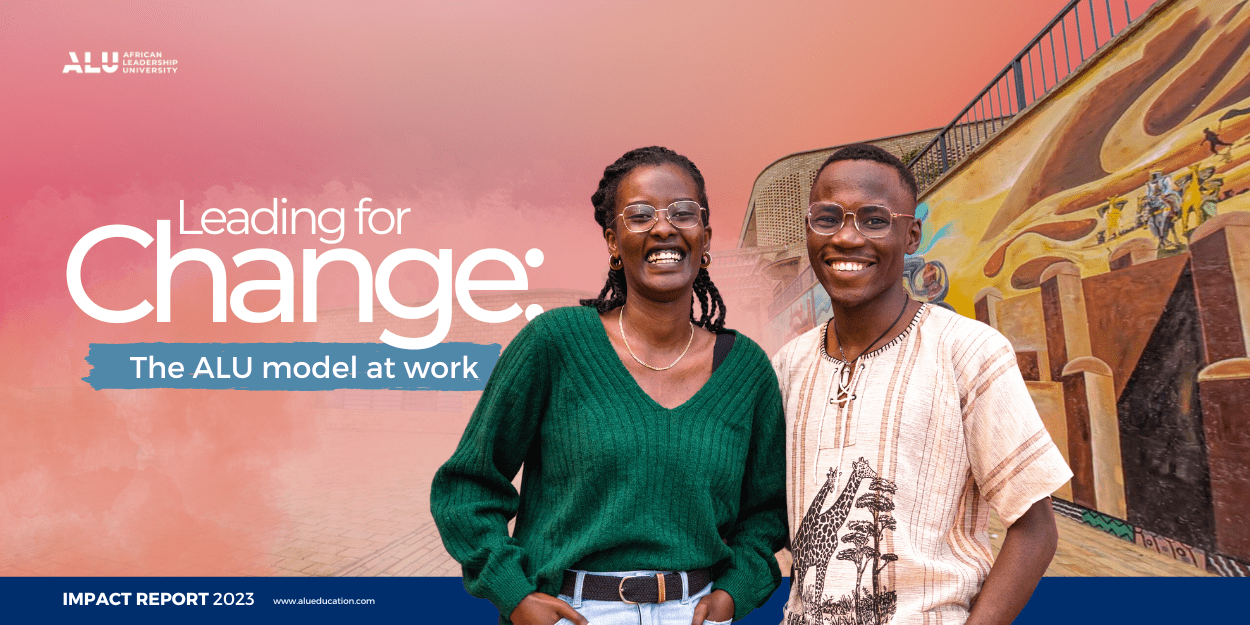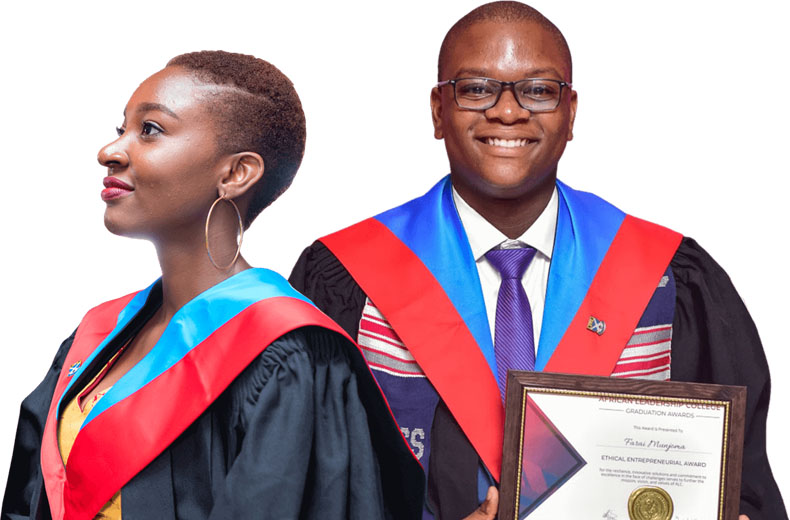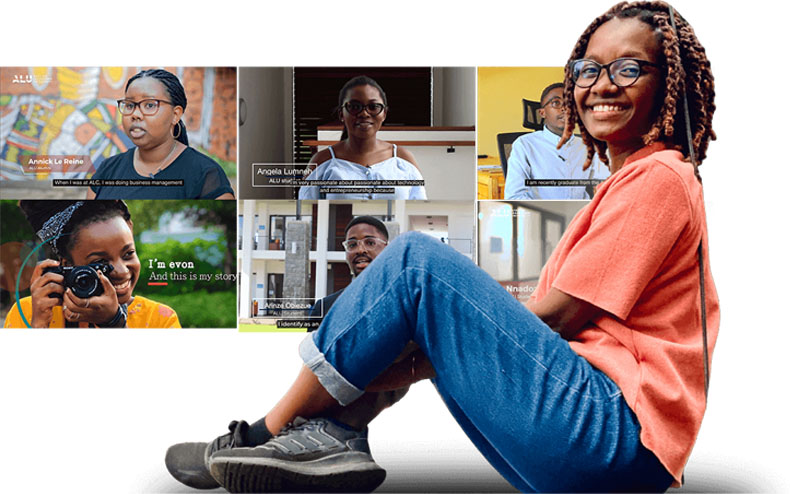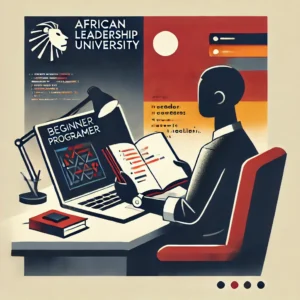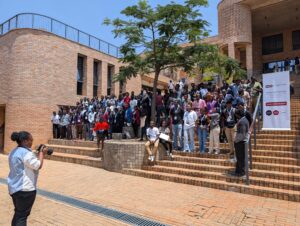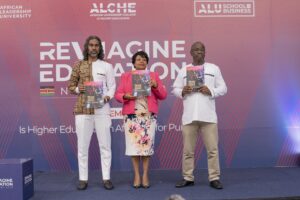[vc_row][vc_column][vc_column_text]The African continent is in a leadership crisis. A lot of the continent’s challenges and missed opportunities can be resolved through sound direction and goal setting by leaders. Our goal at ALU is to fix this problem and transform Africa by investing in its most untapped resource – its people. Through education, we will develop the next generation of leaders who will create wealth for the continent.
How are we doing this? ALU believes that universities aren’t building all the skills that today’s graduates need to become the leaders who will move the continent forward. There is the need for a new kind of tertiary education. Here are eight things that make an ALU education distinctive:
The world’s best curricula in one place
Every learning experience should be excellent and memorable for students. That is why, we have not only developed our own curricula but also curated the best content and learning practices in partnership with some of world’s leading academic institutions and companies. Additionally, in the first year, students will take the leadership core which focuses on developing critical, analytical and communication skills to be successful at ALU and in life. Students will learn how to communicate for impact, make sound decisions based on data, manage projects and lead as entrepreneurs.
Focus on real world skills
ALU believes that simply learning and memorizing theoretical content is not enough – students need to be prepared to take on the challenges and problems of an ever-changing world. At ALU, students will learn critical thinking and problem solving skills that they can apply to complex tasks and pressing problems in the workplace and in their communities. These skills are developed through our unique peer-learning methodology, project-based curriculum, and real-world application, and are reinforced until the students graduate.
Leveraging peer learning
Instead of the traditional theatre lecture style practiced by most universities, students will test their mastery of concepts through structured peer-to peer interactions and faculty facilitated sessions. Research tells us that the best way to internalize what one learns is to try to teach it to someone else. Students will have regular peer-learning sessions where they will review and re-teach content and skills learned to each other. They even get the chance to try out this learning methodology before they join ALU as ALU applicants take an online course developed to introduce them to the challenges and opportunities on the continent.
Efficient link to employment
The traditional model of education has proved to not develop students who leave school ready to join the workforce. Statistics show that 45% of university graduates in Africa are unemployed, mainly due to a huge gap between what students learn in school and the skills employers are looking for. We believe our students should be ready for life after graduation, and a key part of that is having experience working in real-world settings. ALU has partnered with top companies and organizations to help us develop our curriculum and provide internships. Students will be required to do an internship four months of every year so they gain experience that will prepare them for jobs today and in the future.
No student left behind
ALU ensures that students do not get lost in the crowd and that any challenges they might be experiencing, whether academic or personal, are brought to the attention of our staff and faculty as soon as possible. This way, every student receives the attention they need to be successful at ALU. How do we do this? By harnessing technology. Through a sophisticated learning platform, students receive personalized feedback on how they are progressing and their learning pathways are set based on a student’s individual learning goals and pace. Technology also provides faculty with real time information on how students are doing at an individual and class level, allowing them to tailor, adapt and prepare for classes so as to focus on key areas where students might need the most support.
World class teachers
In most traditional universities, professors are hired because they are good researchers, not good teachers. Many of these professors don’t actually enjoy teaching. This is not the case at ALU. At ALU we hire our faculty because of their passion for teaching and for helping students to become successful, not for the ability to do research. The majority of ALU teachers will also have real world experience in the field or industry that they are teaching. This experience allows them to bring the subject to life and provide students with hands-on practical experience of that they are learning, unlike professors in traditional universities who often only teach theoretical knowledge with no or little real experience of how it is applied in the real world.
We develop students to become leaders
ALU is about more than just helping students get a degree. Our vision is to develop leaders who will change Africa. Students at ALU don’t just join a university, they join a movement that is purposeful about effecting change on the continent. They will develop critical leadership skills around leading themselves, engaging and leading others and leading systems change. They will also gain an entrepreneurial mindset; one with an orientation towards action, making judgments when faced with difficult dilemmas, creativity, thriving within constraints, design thinking, and human-centered solutions.
Pan-Africanism and a Focus on Africa
ALU’s mission is to transform Africa by developing its future leaders who will have a deep understanding of the challenges and opportunities on the continent. African issues and perspectives will be a key component of our curricula. Furthermore, we believe that borderless nations are necessary for the development of the continent as talented, innovative and entrepreneurial people are needed to drive our economic transformation. Both students and faculty are recruited from countries across the continent, making it easier for people to interact, get to know each other and develop the ethos of transformative leadership together.
Join the movement. Learn more.[/vc_column_text][/vc_column][/vc_row]

